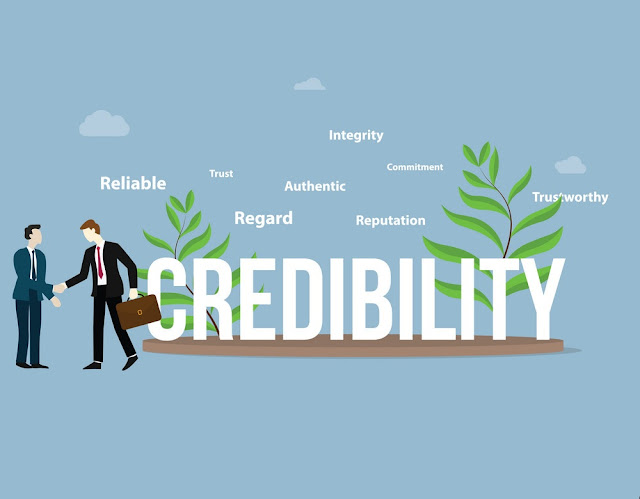Trust is built on credibility, and credibility comes from acting in others’ interests before your own.
- Stephen Denny (Killing Giants)
Effective communication – has been a buzzword in corporate circles for a long time now. I used to ask my team members… What do you think, is the meaning of effective communication? I used to get varied answers, such as – ‘the ability to read, write and speak English (or other languages) effectively’ or ‘the ability to clearly understand another person’s point-of-view’ or ‘the ability to concisely put or share your points across’ and so on…
Communication is a subject, where not only our intelligence, but emotions as well, are deeply involved. We are amazing creatures on this amazing planet! Our bodies give out subtle signals, for others to create multitude of interpretations. It just puts me in awe about how, people try to interpret unsaid words / logic / thoughts of others by just looking at them!
My write-up is not to share my ideas about effective communication. Most
of the corporates already have detailed sliders to provide trainings on this
subject. Internet too, is full of discussions, articles and content on this
subject.
I am going to share the most important hidden aspect of effective communication – which is “credibility”.
What is credibility?
Let’s start by understanding the meaning of ‘credibility’, which is – the quality of being trusted and believed in.
Ahha! If credibility is a human being’s quality, why is it part / aspect of effective communication? The reason is… credibility as a quality is developed, because of the way we communicate – based on our innermost emotions / feelings.
Why do I say it is ‘hidden’?
Credibility encompasses many emotional qualities of a human being and
talks a lot about somebody’s personality. It is a sum of our overall behavior
with any other person. It has been termed ‘hidden’ since…
- As part of trainings on effective communication, qualities such as ‘ethics’, ‘honesty’, ‘art of empathy’ are rarely touched upon.
- There are subtle nuances of behavior among team members, which are driven by understanding each other’s ‘credibility’.
Let me give you an example… Once upon a time, when I was part of a team group discussion, we were stuck with a technical problem. Nobody had worked on such a problem before and our project was almost on a hold. One of my seniors referred to one of his friends (in the same company) and told us, that ‘we can definitely “rely” on him to resolve our issue in record time’. We got an ‘assurance’ just by his statement and we were full of vigor to move ahead. My senior had never worked with his friend on any project. He came to know about his ‘credibility’ from the comments made by his friend’s team members!
This is a very simple example, but I started thinking… how powerful is that person’s personality, that people across multiple groups rely on him for his expertise. The whole personality reflects back on ‘being credible’.
How do we relate ‘being credible’
with ‘effective communication’?
Building our credibility takes its own course of time. Does this mean, that we need to be experienced (or old?!) to be credible? My answer to that is a firm ‘No’. It simply means, that when we show to the world with the utmost conviction (from our hearts) to deal with a problem by giving all that we have, we gain credibility. It is like our own magical veil, that others identify to relate to us in the real world. Whether we are present in front of others or not, the magical veil works for us.
Hence, when we experience situations, where others help us or acknowledge our actions, without us being directly involved, it means our credibility has established the most ‘effective’ part of ‘communication’.Why having a positive credibility
is so important?
Building our own credibility (quality of being trusted) takes time. It not only gets built by the highs and lows, but also gets ‘influenced’ by the ‘perceptions’ of others. Hence, it has its positive and negative sides to it. Building a positive credibility is an outcome of how we face adverse situations and come out of it. It is also built by how we treat others, who may be less (or more) experience than us. Because of this, it is also very much susceptible be broken, even after we may ‘do the right thing’ based on our own understanding!
Nonetheless, after due hard and smart work, credibility lends us amazing benefits for an effective communication, as we add more years to our lives. With a very high credibility, our sheer presence at an occasion lends vitality to the audience. This is exactly, the epitome of ‘effective communication’. There are no words spoken, nothing read or written, but the presence makes a powerful statement.
How can we build positive
credibility?
- Being willing to learn and try new things.
- Look at failures as stepping stones… learn and adapt.
- Always help others without expectations. This is a mantra to be happy forever! (more to come on this soon)
- Always close communication threads and loops. This builds on the trust by others.
- Bury the past and plan for a bright future (forgive and forget). Ruing about the past has helped nobody. Learning from past and moving on always helps. At the same time, keep trusting others. This human society is sea of amazing souls, who are here to help us all!
- And finally, always be positive! There is no better elixir of being positive in today’s world.
Today, we are living in an amazing world full of opportunities, technology
and comfort with the least amount of war-mongering, hatred and lots of mundane
hard-work. Let’s make the best of it!
- Written by Anand Nanavati (SupraDigit Solutions)


Comments
Post a Comment